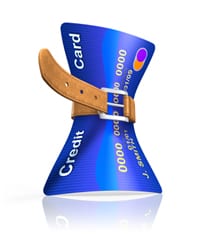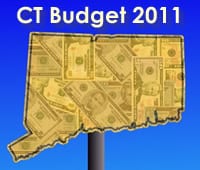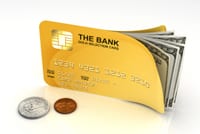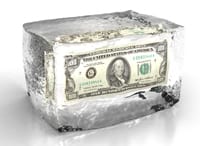In the last few weeks, I have had several people talk with me about end-of-life financial planning. They’ve told me what they’ve done and what they’re stuck on.
I was at an anniversary party and one of the guests told me that he discussed his finances with his adult son for the first time. After reading one my Quick Tips articles, he took the initiative to map out his financial picture so his son would know where to find all the details if the worst happened.
In another conversation, a reader shared that she was having trouble choosing the right person to be the executor of her will. This can be a touchy decision for all of us. She wasn’t sure there was anyone in her family who could handle it. I suggested looking outside the family for a trusted friend or professional. She was able to think of someone, but her new dilemma is moving forward.
Lastly, I was coaching a woman in her early 30’s whose goal is financial security. Her husband recently passed away leaving her a single parent facing all of life’s challenges alone.
These are people in all stages of life dealing with the financial complications of death.
That brings me to today’s tip – the must-have documents.
- Do you have a will?
- Do you have a living will?
- How about a healthcare agent?
You need these documents regardless of your age. Any estate attorney will be able to help you with preparing these documents, but here is some basic information to get you thinking:
Your Will – Who will be the executor of your estate? You should choose someone that you trust with the intimate details of your life. My suggestion is to think of a few people. If your first choice declines, you move onto the next until you find a willing partner who can handle the responsibility.
Next, think about what you own and who you want to leave it to. Be specific with your possessions and your choices. It’s really not enough to leave all your jewelry to your nieces. You don’t want your legacy to be a family feud over who gets the first pick. Your attorney will be able to get you a questionnaire to help you through the process.
Your Living Will – If you are incapable of making medical choices for yourself, what will happen to you? Yes, this is a difficult question to ask yourself, but you need to write your wishes out. That way you can make your own choices even if you can’t express them yourself.
Your Healthcare Agent –Do you want someone to be able to make your medical decisions when you are not capable? Then this is the document you need. Most hospitals will require you to have this before a procedure. This should be someone you trust to make the decisions you would want made.
Check with an attorney for guidance and start working on your must-have documents today.


 It’s summer – hurray! But with summer comes the possibility of storms and power outages. This has been a year of unpredictable weather. Are you prepared for whatever comes next?
It’s summer – hurray! But with summer comes the possibility of storms and power outages. This has been a year of unpredictable weather. Are you prepared for whatever comes next? You see this happen all the time. You are in a situation with other people and someone mentions his nice vacation plans. What is the first thing that pops into your head? Are you genuinely happy for him or do you automatically think about how much he’s spending (that includes jealous thoughts of the “he must be making more money than me” kind). You know what I mean.
You see this happen all the time. You are in a situation with other people and someone mentions his nice vacation plans. What is the first thing that pops into your head? Are you genuinely happy for him or do you automatically think about how much he’s spending (that includes jealous thoughts of the “he must be making more money than me” kind). You know what I mean.
 The new CT budget will take effect on July 1
The new CT budget will take effect on July 1 I met a woman who asked me some questions when she found out what I do for a living. This subject is one that all of you should be aware of. You wouldn’t believe how many people this affects.
I met a woman who asked me some questions when she found out what I do for a living. This subject is one that all of you should be aware of. You wouldn’t believe how many people this affects.
 Secured versus pre-paid credit – do you know what you’re getting? When I am giving a talk, I can see that many people don’t know the difference between them. Let me tell you the facts:
Secured versus pre-paid credit – do you know what you’re getting? When I am giving a talk, I can see that many people don’t know the difference between them. Let me tell you the facts: Do you want to cut your spending? Organize your belongings and stop to think before you buy. How does that help? Read below
Do you want to cut your spending? Organize your belongings and stop to think before you buy. How does that help? Read below